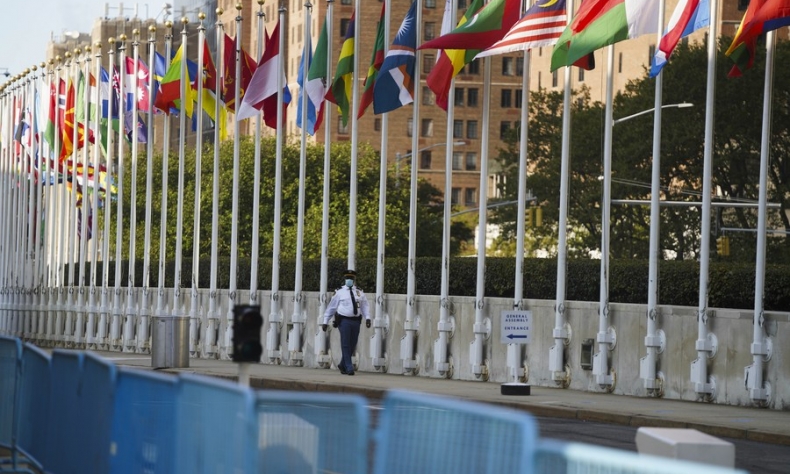Rules-Based World Order: a Legacy of the Colonial Hierarchy

Competition and cooperation imply equality but it is U.S. policy to maintain, at all costs, a colonial hierarchy it calls the ‘rules-based order’ in its relationship with China.
There is no substitute for President Xi Jinping’s meeting with his U.S. counterpart, Joe Biden, in Bali to guide the China-U.S. relationship, the most important bilateral relationship for the peace and prosperity of the world.
As the first face-to-face meeting since Biden became president, it was, as Chinese Foreign Minister Wang Yi said, a meeting that “set a clear direction, which is to prevent China-U.S. relations from derailing and getting out of control.”
The meeting put a much needed brake on the steady deterioration of relations between China and the U.S. over the last few years. The two leaders took a small step towards stabilizing the relationship by meeting in person and agreeing to create mechanisms to collaborate where possible and set guardrails so that competition does not veer into conflict.
The main achievement of the meeting was that it allowed the leaders meet face to face amid meetings with other leaders. In this context, both leaders acknowledged the world’s expectation that they find ways to set the relationship on a positive course. And the two sides agreed to appoint officials to carry on the work of establishing principles and mechanisms to improve cooperation and mitigate potential conflict.

Hopeful signs
This was the deepest and most positive discussion that the two countries have had since 2020. Biden arrived fresh from a better-than-expected midterms result, perhaps feeling freshly empowered to change U.S.-China ties. He reiterated the United States’ commitment to the one China Policy and framed the relationship with a familiar model of competition/cooperation from the days of Bill Clinton’s policy of engagement. The idea there is to separate areas for cooperation from those for competition and to find ways to prevent it from veering into conflict. This meeting had been carefully prepared for weeks. Biden’s remarks and the U.S. readout were otherwise generic.
Xi, meanwhile, had concluded the 20th National Congress of the Communist Party of China with a refreshed Party leadership, having formulated a vision and set of guiding principles for China’s development path and foreign policy.
Overall, the Chinese position was comprehensive, structured and explanatory in depth. This followed from Xi’s characterization of the historical moment, a turning point in history in which the challenge, implicitly, was for the U.S. to recognize that the world was large enough for both it and China to prosper together. To that end, they should form a correct perception of each other’s policies and strategic intentions. China’s intentions, Xi said, were laid out transparently and for the long term at the recent CPC National Congress. He then began to expound on those policies and strategies.
The discussion took a remarkable dive into an exposition of China’s system of government and its ideology, for the benefit of Biden and his team. Over a meeting that stretched to three hours, Xi took the time to explain the Chinese way of democracy -whole process of people’s democracy -and its commitment to socialism and to provide a full account of the origin of the Taiwan question and China’s position on it.
He tried to have the American side understand and accept China’s and, by implication, every other nation’s right to pursue the common good of its people in a way attuned to its history, culture and circumstances. In doing this, Xi addressed Biden’s trademark attempt to divide the world into democracies vs. autocracies. Instead of this childish and hypocritical scheme, Xi called for the peaceful acceptance of difference, with an oblique rejection of the West’s demonization of China’s system of government and its claim to a monopoly over the paths to modernity. At the recent Party Congress, Xi had reaffirmed the Chinese path to modernization.

Cause for caution
Biden framed the meeting in terms of a policy of engagement and while this is most welcome, China needs to be cautious about U.S. ability to adhere to a win-win, competition/cooperation framework over time.
Even for making his seemingly commonsense proposal to identify areas for cooperation amidst competition, Biden has already been attacked at home for surrendering to Chinese “totalitarian expansionism” (In the American foreign policy mind, they are always fighting Hitler). U.S. society has entered a period of social disintegration, political conflict and economic turbulence. Anti-China policy is one of the few things on which unanimity can be obtained on the cheap in a divided, poorly educated society with an unpopular political class.
As Xi reminded Biden in Bali, he has repeatedly said one thing and done another. This is more than a personal foible of Biden’s. The United States has a long and near-perfect record of unreliability in keeping agreements it has made with its perceived adversaries. This inability to stick to agreements may only get worse as policy becomes the captive of short term politics and an election process saturated with money selects for weak or erratic leaders.
As a matter of fact, U.S. China policy has already crossed from engagement into a securitized, zero-sum strategy of containment and denial. The stated intention of the United States’ regime of sanctions and export and technology restrictions, which it imposes even on third parties, and its attempt to create a chips alliance, go well beyond industrial strategy or protectionism. Competition and cooperation imply equality but it is U.S. policy to maintain, at all costs, a colonial hierarchy it calls the ‘rules-based order’ in its relationship with China. To do this, it will seek dominance not through competition but through coercion. It will try to starve some existing industries and deny China the means to develop key technologies and industrial sectors. In this regard, for the sake of U.S. security, China has grown too big to succeed. For the U.S. to win, China must lose. Trade and technology policy and every other means at the disposal of the national security state, is already applied as part of a cold war waged upon China’s sovereign right to peaceful development.
The Chinese readout of the meeting referred, gently but unmistakably, to the question of world order: whether it is to be defined by the old Anglo-American dominance cloaked as “democracy vs. authoritarianism,” which tolerates no difference that it cannot dominate, or a world in which there is room for multiple paths and centers, a multipolar world.
The author is a former Malaysian government official and was founding CEO of the CIMB ASEAN Research Institute.
 Facebook
Facebook
 Twitter
Twitter
 Linkedin
Linkedin
 Google +
Google +










